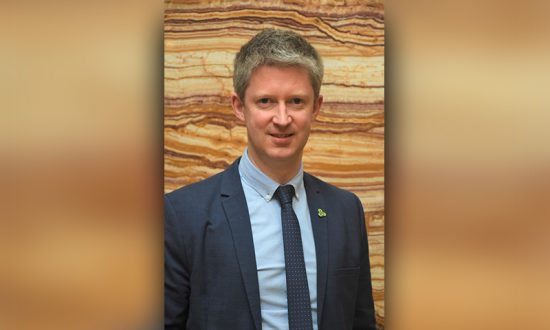Barry O’Driscoll is a Senior Education Adviser for Education in Ireland. Enterprise Ireland manages the ‘Education in Ireland’ national brand under the authority of the Minister for Education and Skills. Barry has a background in international business and languages and has an MBS in human resource management. He has over ten years of experience working with organizations in the areas of training and education as well as international business development. His work involves marketing and promoting Ireland’s offer to students from India, Sri Lanka, Mexico and Colombia.
The COVID-19 situation has had an immediate impact on higher education across the globe. International students studying far from home had to decide whether to return home to continue studies online or stay abroad during a period of social distancing measures. Here in Ireland, in mid-March, all teaching and learning in the Irish higher education institutions went online. And at that point, many international students went home to continue their studies. But a significant number of international students, including Indians, did remain in Ireland and are here completing their education and preparing for exams.
Be it for undergraduate studies, exchange programmes or masters courses, the pandemic has produced many questions from students who are currently planning their studies abroad. Last year, around 5,000 students from India chose Ireland for higher education, the majority choosing to pursue masters programmes. It is not yet clear when will the countries lift restrictions, and indeed when international travel will resume. Students face several scenarios for the next term, such as a delayed start and an online start to programmes. According to several surveys done recently, the majority of students would still like to go ahead with their plans to study abroad soon despite the current COVID-19 crisis. We are seeing that the Irish higher education institutions are saying that they still accept offers and deposits paid from students in India. So, it’s clear that Indian students and their families are even planning for the future and investing in their higher education. Many students would still have the intention to undertake their masters in the next academic year, despite the challenges and uncertainty.
How is Ireland Supporting Students During the Crisis
The Irish government took a series of measures, based on scientific advice, to slow the spread of the virus. For example, in early May, the government decided to cancel the St Patrick’s Day celebrations for this first time. It was a significant decision at that time, as it was our national holiday and one of the most significant events in the year in Ireland. Following that, the government brought in some strict social distancing measures across the country which required everyone in Ireland to stay home as much as possible and exercise was only to be done within 2km of home. It’s worth noting that the Irish Prime Minister, or Taoiseach, Dr Leo Varadkar is Indian-origin and trained as a medical doctor. He also recently returned to medicine to work part-time as a doctor to help out during the COVID-19 crisis while continuing to lead Ireland through the pandemic. At that time, the Irish government quickly announced that in terms of healthcare, all international students in Ireland, of all nationalities who were directly affected by COVID-19 would have full access to the necessary part of the Irish healthcare system, at no cost. The Irish government also decided that any international student who lost part-time work as a result of COVID-19 would be entitled to an emergency payment of 350eur per week, which was quite reassuring to students who had lost their part-time job. It was important that international students who remained in Ireland were taken care of. On the academic side, all lecturers and tutors continue to be available online as students now undertake assessments
International Admission Process
The Irish institutions, despite working remotely, are fully open and dealing with many queries from international students who hold offers for the next academic year. The admissions process is effectively operating as usual. While the Irish visa office in New Delhi has been temporarily closed, it is expected that there will be an update in May about plans to reopen the office and process visas once again. In terms of the programmes that are still in demand, we see much interest in courses that have been popular in Ireland for some years. Programmes such as data analytics, artificial intelligence, MBAs, international finance, digital marketing, electronic engineering, biomedical science. Recently some new options were introduced in terms of English language testing. Along with the usual tests like IELTS, the DUOLINGO online test is now accepted. There is also a TOEFL at Home test, by ETS that is accepted by the Irish higher education institutions in Ireland as well as our Visa Office in New Delhi.
Gaining Popularity of Online Learning
The power of technology has undoubtedly allowed international students to continue their education during this challenging time. Current students completed their learning and are currently undertaking their assessment online. Looking ahead to the next academic year, it is likely that many higher education institutions will offer an online start to course, specifically for students who cannot travel for the start of term. There may be a common scenario where universities start the academic year with lectures and classes on campus next September or October and in parallel offer distance learning options (where the lectures are recorded for example) for international students whose travel has been delayed. This could be a useful solution to students who are keen to undertake a masters degree abroad for the 2020/2021 academic year and prefer not to wait for the following year. Studies have shown that students very much value the international experience of studying on campus at an overseas institution and that online learning is not an equivalent alternative, however, in the next academic year we may see more of a ‘blended’ learning approach to learning.




